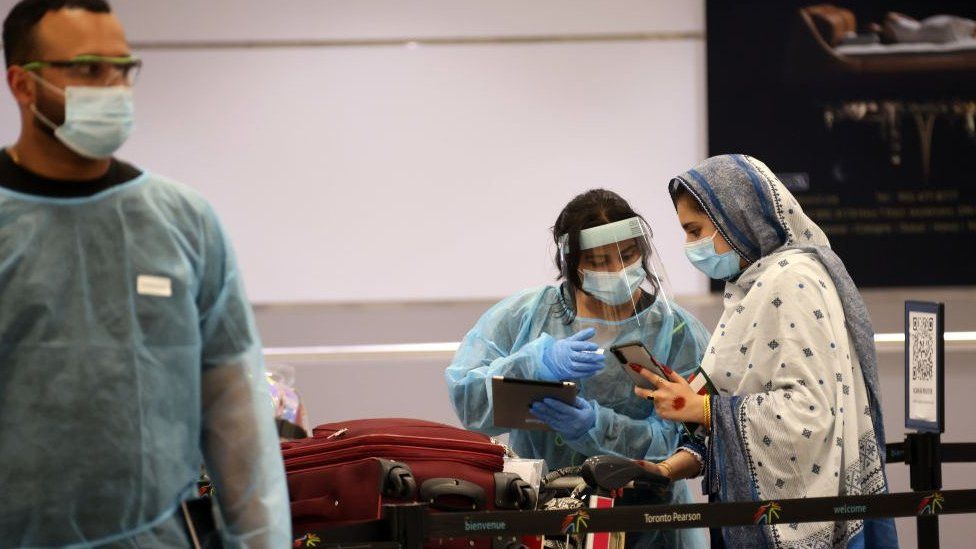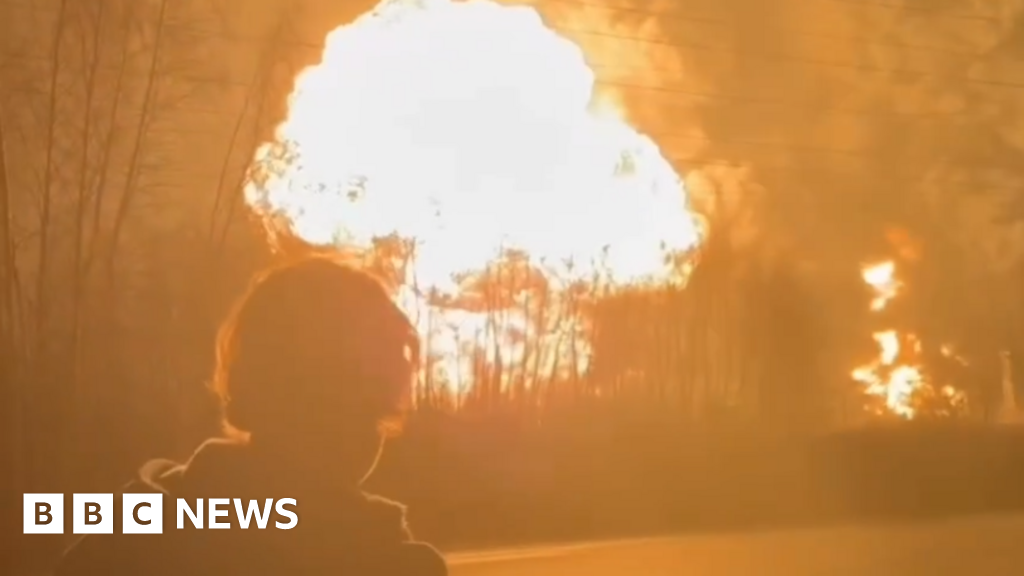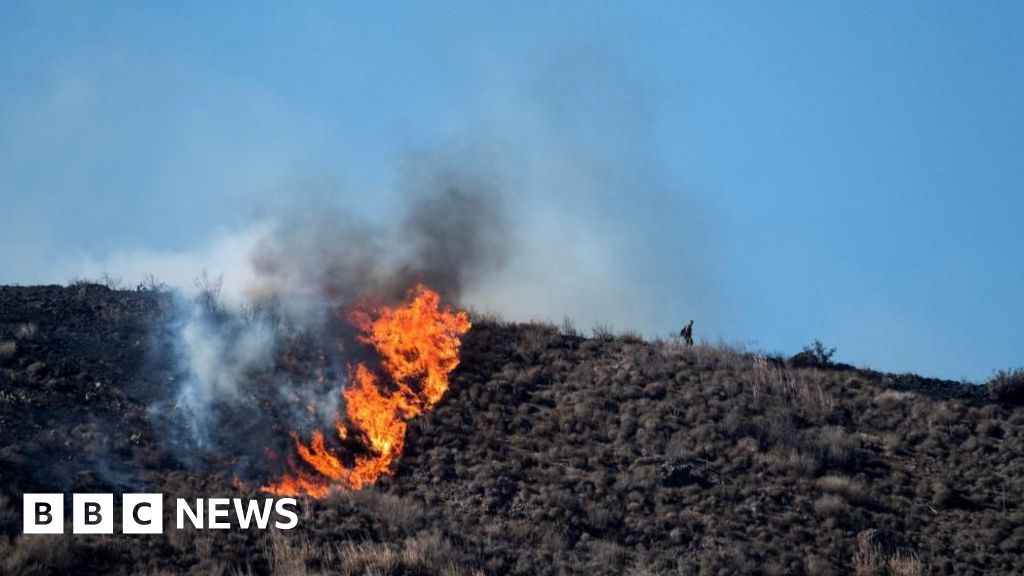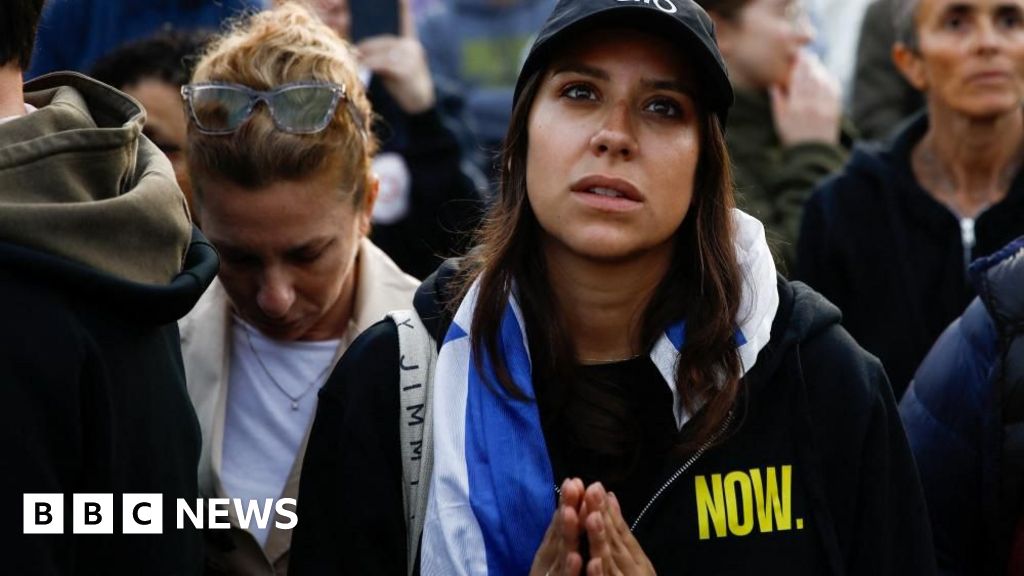ARTICLE AD BOX
 Image source, Getty Images
Image source, Getty Images
Masking on planes and trains will become optional, and random Covid-19 testing at Canadian airports will cease as of 1 October.
Canada has said it is dropping all remaining Covid border restrictions, including vaccine requirements for travellers.
As of 1 October, travellers will also no longer need to provide proof of Covid vaccination, to undergo any testing or to isolate and quarantine.
The mask mandate on planes and trains will also be lifted.
The ArriveCan app - used to upload health documents when entering Canada - will become optional.
Federal health minister Jean-Yves Duclos said in an announcement on Monday that Canada is "in a much better position" than it was earlier in the pandemic, in part due to availability of Covid-19 vaccines and treatment options.
The country's high vaccination rate - with around 82% of the population having received two doses - and a falling death rate are also factors.
Around 32 Canadians are currently dying each day from the the virus.
Covid-19 cases are slowly rising in Canada and signs point to a resurgence ahead of autumn, Mr Duclos said, but he added this is "largely explained by the domestic transmission of the virus".
He said Ottawa is open to reintroducing measures, especially if a new, highly-transmissible variant emerges.
Vaccine mandates for travellers entering the US remain in place, and some American lawmakers have urged President Joe Biden to drop remaining restrictions.
Other countries, including the United Kingdom, dropped Covid entry requirements earlier this year.
Covid-19 mandates were opposed by some in Canada and were the subject of the 'Freedom Convoy' protests in Ottawa, which were held in support of truckers who refused to get vaccinated to cross the US-Canada border.
The February protests gridlocked Canada's capital for two weeks.
Supporters of the convoy also staged blockades at key border crossings between the US and Canada, disrupting the flow of goods between the two countries.
The protests were eventually cleared after Prime Minister Justin Trudeau invoked the never before used Emergencies Act, which gives the government additional powers in times of national crisis.
The World Health Organisation declared in early September that Covid-19 deaths have hit their lowest point but experts have warned about ongoing threat of the virus, especially if new variants emerge.
Despite the end of the restrictions, Mr Duclos urged people to get their booster shots and encouraged people to continue wearing masks in public.

 2 years ago
55
2 years ago
55








 English (US) ·
English (US) ·